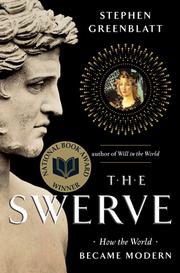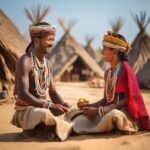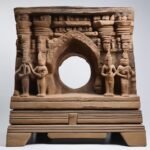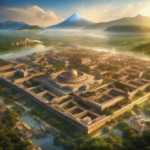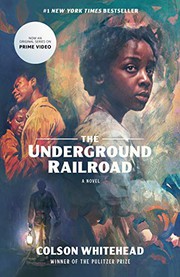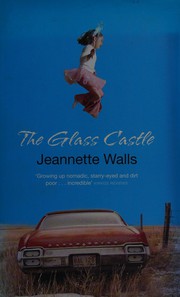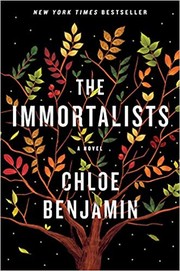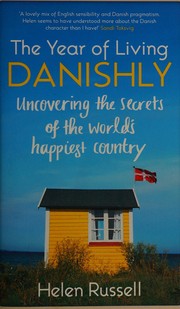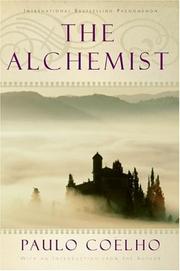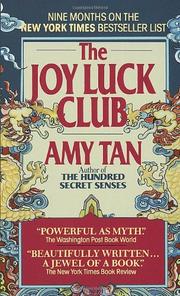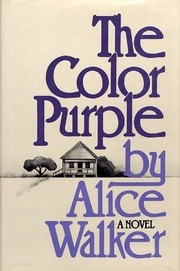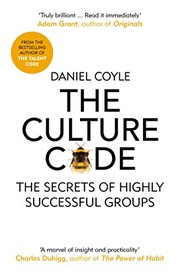Are you looking to delve into the rich tapestry of human experience and broaden your understanding of different societies and traditions? Look no further! In this curated list, we’ve compiled the 20 best books about culture that offer unique insights into the diverse facets of human civilization. Whether you’re interested in anthropology, sociology, or simply enjoy exploring new perspectives, these books on culture will take you on a captivating journey around the world. From thought-provoking essays to immersive ethnographies, these culture books are sure to expand your horizons and deepen your appreciation for the complexities of our global community.
Contents
- 1 20 Best Culture Books
- 2 Sapiens: A Brief History of Humankind
- 3 The Immortal Life of Henrietta Lacks
- 4 Educated
- 5 The Gene: An Intimate History
- 6 The Silk Roads: A New History of the World
- 7 The Warmth of Other Suns
- 8 The Sixth Extinction: An Unnatural History
- 9 The Swerve: How the World Became Modern
- 10 The Lost City of the Monkey God
- 11 The Devil in the White City
- 12 The Underground Railroad
- 13 The Emperor of All Maladies: A Biography of Cancer
- 14 The Glass Castle
- 15 The Immortalists
- 16 The Year of Living Danishly
- 17 The Alchemist
- 18 The Joy Luck Club
- 19 The Kite Runner
- 20 The Color Purple
- 21 The Culture Code: The Secrets of Highly Successful Groups
- 22 Final Thoughts on Best Culture Books
- 23
20 Best Culture Books
Sapiens: A Brief History of Humankind
by Yuval Noah Harari
Sapiens: A Brief History of Humankind by Yuval Noah Harari is a captivating book on culture that takes readers on a journey through the history of Homo sapiens, exploring our evolution from insignificant apes to rulers of the world. Harari delves into the cognitive, agricultural, and scientific revolutions that have shaped human society and culture, offering thought-provoking insights into the development of civilizations, religions, and empires. With a compelling narrative and a wealth of historical and anthropological research, this book about culture challenges readers to rethink their understanding of human history and the forces that have shaped our collective identity. Whether you’re a history buff or simply curious about the origins of human society, Sapiens is sure to leave a lasting impression and inspire a deeper appreciation for the complexities of our shared culture.
The Immortal Life of Henrietta Lacks
by Rebecca Skloot
The Immortal Life of Henrietta Lacks by Rebecca Skloot is a captivating nonfiction book that delves into the intersection of science, ethics, and the impact of one woman’s cells on the world. Henrietta Lacks was an African American woman whose cells were taken without her consent in the 1950s and became the foundation for countless medical breakthroughs, including the polio vaccine and in vitro fertilization. Skloot skillfully weaves together the story of Henrietta’s life, the scientific significance of her cells, and the ethical implications of their use.
This book is a fascinating exploration of the deep-rooted issues surrounding medical research, race, and informed consent. Skloot’s narrative is both enlightening and emotionally resonant, offering a thought-provoking look at the impact of scientific advancement on individuals and society. The Immortal Life of Henrietta Lacks is a must-read for anyone interested in the intersection of science, ethics, and the enduring legacy of one woman’s cells.
Educated
by Tara Westover
Educated by Tara Westover is a powerful memoir that delves into the author’s journey from a survivalist family in rural Idaho to earning a PhD from the University of Cambridge. This captivating book provides a fascinating insight into the author’s upbringing in a strict and isolated environment, where she was denied access to formal education and medical care. Despite these challenges, Westover’s thirst for knowledge and determination to break free from the constraints of her upbringing lead her on a remarkable journey of self-discovery and academic success.
Through her compelling storytelling, Westover explores themes of family, identity, and the power of education. The book offers a thought-provoking reflection on the impact of upbringing and the ways in which education can shape and redefine one’s understanding of the world. Educated is a moving and inspiring testament to the resilience of the human spirit and the transformative power of knowledge. This profound memoir is a must-read for anyone interested in a captivating book about culture.
The Gene: An Intimate History
by Siddhartha Mukherjee
The Gene: An Intimate History by Siddhartha Mukherjee is a captivating exploration of the book about culture of genetics and its impact on humanity. Mukherjee, a Pulitzer Prize-winning author and physician, delves into the culture book of genetics from its discovery to the present day, unraveling its profound influence on our understanding of heredity, disease, and identity.
Through a blend of scientific research, personal anecdotes, and historical narratives, Mukherjee skillfully navigates the complex book on culture of genes and their role in shaping the human experience. He examines the ethical and philosophical implications of genetic advancements, shedding light on the profound ways in which genetics has influenced society, medicine, and the very fabric of human existence.
With its rich storytelling and thought-provoking insights, The Gene offers a profound and enlightening journey into the book about culture of genetics, appealing to both science enthusiasts and general readers alike.
The Silk Roads: A New History of the World
by Peter Frankopan
The Silk Roads: A New History of the World by Peter Frankopan is a captivating book about culture that explores the intricate web of trade, conquest, and cultural exchange that shaped the world as we know it. Frankopan takes readers on a journey along the ancient Silk Roads, uncovering the pivotal role these routes played in connecting the diverse cultures of Asia, Africa, and Europe. Through his meticulously researched narrative, Frankopan challenges traditional Eurocentric views of history and invites readers to consider the profound impact of cultural interactions and cross-pollination.
From the rise and fall of empires to the spread of religions and the exchange of goods and ideas, The Silk Roads offers a fresh perspective on the forces that have shaped human culture throughout the ages. Through vivid storytelling and insightful analysis, Frankopan demonstrates how the Silk Roads not only facilitated trade but also paved the way for the transmission of knowledge, technology, and cultural practices. This thought-provoking book on culture is a must-read for anyone interested in understanding the interconnectedness of human culture and history.
The Warmth of Other Suns
by Isabel Wilkerson
The Warmth of Other Suns by Isabel Wilkerson is a captivating and powerful book about the migration of African Americans from the South to the North and West during the 20th century. This deeply moving work explores the experiences of three individuals who left the Jim Crow South in search of better opportunities and freedom. Wilkerson skillfully weaves together their stories, shedding light on the struggles and triumphs of those who participated in this great migration. Through their journeys, the book offers a poignant and insightful look at the impact of systemic racism, segregation, and discrimination on individuals and communities. The Warmth of Other Suns is a thought-provoking and eye-opening exploration of the intersection of race, identity, and resilience in America. It is a must-read for anyone interested in understanding the complexities of the human experience and the enduring legacy of the Great Migration.
The Sixth Extinction: An Unnatural History
by Elizabeth Kolbert
The Sixth Extinction: An Unnatural History by Elizabeth Kolbert is a fascinating exploration of the current mass extinction of species on Earth. Kolbert takes readers on a journey across the globe, from the rainforests of Peru to the Great Barrier Reef, to investigate the impacts of human activity on the planet’s biodiversity. Through engaging storytelling and in-depth research, she reveals how human actions, such as deforestation, pollution, and climate change, are driving countless species to the brink of extinction. This eye-opening book delves into the interconnectedness of ecosystems and highlights the urgent need for conservation and environmental stewardship. It’s a thought-provoking and sobering read that presents a compelling case for reevaluating our relationship with the natural world. The Sixth Extinction is a must-read for anyone interested in environmental science, biology, and the future of life on Earth.
The Swerve: How the World Became Modern
by Stephen Greenblatt
The Swerve: How the World Became Modern by Stephen Greenblatt is a captivating book on culture that explores the transformative power of ideas. Greenblatt takes readers on a journey through the ancient world, focusing on the rediscovery of a Roman philosophical poem by the 15th-century book hunter Poggio Bracciolini. This seemingly insignificant event sparked a chain reaction that ultimately led to the dawn of the modern age. Through meticulous research and engaging storytelling, Greenblatt reveals how this forgotten text helped to revive the humanist movement, fuel the Renaissance, and pave the way for the scientific revolution.
With vivid descriptions and compelling anecdotes, Greenblatt demonstrates how the ideas contained within this ancient poem influenced the course of history, challenging established beliefs and ushering in a new era of critical thinking and intellectual curiosity. The Swerve is a thought-provoking book about culture that sheds light on the power of literature and the impact of ideas on society, making it a must-read for anyone interested in the history of ideas and the evolution of human thought.
The Lost City of the Monkey God
by Douglas Preston
The Lost City of the Monkey God, written by Douglas Preston, is a captivating non-fiction adventure that delves into the exploration of a lost civilization in the dense jungles of Honduras. This gripping tale follows the author and a team of scientists, archaeologists, and filmmakers as they embark on a treacherous journey to uncover the ancient city rumored to be the ‘White City’ or ‘City of the Monkey God’.
As they battle through harsh terrain, deadly wildlife, and the looming threat of a centuries-old curse, the team unearths remarkable artifacts and structures that shed light on a long-lost culture. The book delves into the history and significance of the civilization, providing a fascinating insight into the intricate rituals, beliefs, and societal structures of this enigmatic society.
The Lost City of the Monkey God is a mesmerizing blend of adventure, history, and anthropology, offering readers a thrilling glimpse into a forgotten world and the enduring allure of ancient cultures.
The Devil in the White City
by Erik Larson
The Devil in the White City by Erik Larson is a captivating book about culture that intertwines the stories of two men during the 1893 World’s Columbian Exposition in Chicago. Architect Daniel Burnham is tasked with creating a grand fair to showcase America’s progress, while Dr. H.H. Holmes, a charming and cunning serial killer, uses the event to lure his victims to their demise.
Larson masterfully weaves together the grandeur of the fair’s construction with the chilling acts of Holmes, creating a thrilling narrative that delves into the cultural and societal backdrop of Gilded Age America. The book offers a fascinating exploration of ambition, innovation, and the darker side of human nature, making it a compelling read for anyone interested in books about culture.
With meticulous research and vivid storytelling, Larson brings the past to life and immerses readers in a world of architecture, innovation, and crime, making The Devil in the White City a must-read for anyone seeking a gripping book on culture.
The Underground Railroad
by Colson Whitehead
The Underground Railroad by Colson Whitehead is a compelling and thought-provoking book about the history of slavery and the resilience of the human spirit. Whitehead reimagines the Underground Railroad as an actual underground network of trains and tunnels, creating a powerful allegory for the struggles and triumphs of the enslaved people in America. This Pulitzer Prize-winning novel delves deep into the cultural complexities of race, freedom, and the pursuit of justice, offering a gripping and emotional exploration of the African American experience.
Through vivid storytelling and rich character development, Whitehead sheds light on the harsh realities of slavery while also celebrating the strength and determination of those who fought for their freedom. The novel offers a profound and immersive look into the cultural landscape of the antebellum South, challenging readers to confront the systemic oppression and violence that defined this era. The Underground Railroad is a must-read for anyone seeking a deeper understanding of the cultural forces that have shaped American society.
The Emperor of All Maladies: A Biography of Cancer
by Siddhartha Mukherjee
The Emperor of All Maladies: A Biography of Cancer by Siddhartha Mukherjee is a captivating exploration of the history, science, and culture surrounding one of the most pervasive and enigmatic diseases of our time. This Pulitzer Prize-winning book delves into the complex and compelling story of cancer, unraveling its origins, treatments, and the tireless efforts of doctors and researchers to combat it.
Through meticulous research and eloquent storytelling, Mukherjee paints a vivid picture of the impact of cancer on individuals, families, and society as a whole. He skillfully weaves together the personal experiences of patients, the groundbreaking discoveries of scientists, and the ethical dilemmas faced by the medical community, creating a comprehensive and engrossing narrative.
With its thought-provoking insights and powerful human stories, The Emperor of All Maladies goes beyond being just a book about culture; it is a deeply affecting exploration of the human experience in the face of a formidable adversary.
The Glass Castle
by Jeannette Walls
The Glass Castle by Jeannette Walls is a captivating memoir that delves into the complexities of family dynamics and resilience in the face of adversity. Walls recounts her unconventional upbringing with her eccentric, nomadic parents and three siblings, painting a vivid portrait of a childhood filled with both moments of joy and profound struggles.
Throughout the book, Walls grapples with issues of poverty, neglect, and the clash between familial loyalty and personal ambition. Her parents’ unconventional approach to parenting and their disdain for societal norms provide a thought-provoking commentary on individualism and the impact of upbringing on one’s identity.
This compelling narrative offers a poignant exploration of the human spirit and the ways in which individuals navigate their own paths in the world. The Glass Castle is a powerful testament to the enduring bonds of family and the resilience of the human spirit, making it a must-read for anyone interested in a thought-provoking book on culture and society.
The Immortalists
by Chloe Benjamin
The Immortalists by Chloe Benjamin is a captivating novel that delves into the themes of destiny, mortality, and the pursuit of immortality. Set in New York City in the late 1960s, the novel follows the lives of the Gold siblings who, after visiting a fortune teller, learn the dates of their deaths. The book explores how this knowledge shapes their decisions and relationships as they navigate through life.
Benjamin’s skillful storytelling weaves together the four siblings’ unique journeys, each grappling with the weight of their predetermined fate. The novel offers a thought-provoking exploration of the human desire to defy mortality and the impact of belief in fate on the course of one’s life. The Immortalists is a profound and engrossing book about the complexities of life, the search for meaning, and the enduring power of family bonds.
With its rich character development and compelling narrative, The Immortalists is a must-read for anyone interested in a thought-provoking book about culture.
The Year of Living Danishly
by Helen Russell
The Year of Living Danishly by Helen Russell is a captivating book about immersing oneself in a new culture. The author, a British journalist, and her husband move to Denmark for a year when he gets a job at Lego. Russell finds herself diving headfirst into the Danish way of life, exploring everything from their work-life balance to their obsession with hygge (the Danish concept of coziness and contentment).
With humor and insight, Russell shares her experiences navigating the quirks and customs of Danish culture. She delves into the country’s social welfare system, education, and healthcare, offering a fascinating glimpse into the Danish way of life. As she navigates the challenges of living in a new country, Russell also reflects on her own values and priorities, providing a thoughtful exploration of what it means to adapt to a different culture.
Whether you’re a travel enthusiast, a culture buff, or simply looking for an entertaining read, The Year of Living Danishly offers a delightful and informative journey into the heart of Danish society.
The Alchemist
by Paulo Coelho
The Alchemist by Paulo Coelho is a captivating tale of self-discovery and the pursuit of one’s dreams. Set in Spain, the story follows Santiago, a young shepherd who embarks on a journey to find a hidden treasure in Egypt, after having a recurring dream. Along the way, he encounters various characters who impart wisdom and guidance, leading him to uncover the true meaning of his quest.
This timeless classic explores themes of destiny, personal legend, and the interconnectedness of the universe. Coelho weaves a rich tapestry of culture, spirituality, and philosophy, making it a must-read for anyone seeking inspiration and enlightenment. The Alchemist is not just a book about culture, but a transformative experience that encourages readers to listen to their hearts and pursue their passions.
With its universal message and profound insights, The Alchemist has touched the lives of millions around the world, making it a beloved and enduring classic in the literary world.
The Joy Luck Club
by Amy Tan
The Joy Luck Club, written by Amy Tan, is a captivating book about the intertwining lives of Chinese immigrant mothers and their American-born daughters. This poignant novel delves into the complexities of familial relationships, identity, and the cultural divide between generations. The narrative unfolds through a series of interconnected stories, each offering a glimpse into the experiences of these women as they navigate the challenges of assimilation, tradition, and the pursuit of the American Dream. Through the richly woven tapestry of these characters’ lives, Tan beautifully explores the nuances of heritage and the impact of cultural heritage on individual identity. The Joy Luck Club is a fascinating and emotional exploration of the immigrant experience, offering readers a profound insight into the complexities of cross-cultural dynamics and the enduring power of family bonds. This book on culture is an evocative and thought-provoking masterpiece that continues to resonate with readers worldwide.
The Kite Runner
by Khaled Hosseini
The Kite Runner is a captivating book about culture, loyalty, and redemption. Set in Afghanistan, it follows the story of Amir, a young boy from the privileged Pashtun class, and his close friend and servant Hassan, a Hazara. The novel explores the intricate dynamics of their friendship against the backdrop of a changing Afghanistan, from the monarchy through Soviet occupation and the Taliban regime.
Through the characters’ experiences, the book delves into themes of betrayal, guilt, and the search for forgiveness. The narrative skillfully weaves together personal and political upheavals, providing a poignant portrayal of the impact of war and social divisions on ordinary lives.
Khaled Hosseini’s evocative writing and vivid storytelling create a rich tapestry of Afghan culture, traditions, and history. The Kite Runner is a powerful and thought-provoking exploration of the complexities of human relationships within the context of a rapidly changing society.
The Color Purple
by Alice Walker
The Color Purple by Alice Walker is a powerful and thought-provoking book about the experiences of African American women in the early 20th century. Set in the American South, the novel explores themes of oppression, resilience, and the bonds of sisterhood. Through the character of Celie, the reader is taken on a journey of self-discovery and empowerment as she navigates through abuse, love, and personal growth.
This deeply moving and poignant book about culture sheds light on the complexities of race, gender, and societal expectations during a turbulent period in American history. The novel delves into the struggles and triumphs of the African American community, offering a raw and authentic portrayal of their experiences.
With its rich and evocative prose, The Color Purple is a timeless culture book that continues to resonate with readers around the world. It challenges conventional norms and celebrates the strength and resilience of women in the face of adversity.
The Culture Code: The Secrets of Highly Successful Groups
by Daniel Coyle
The Culture Code by Daniel Coyle is a fascinating book about the dynamics of highly successful groups. Coyle delves into the intricate web of relationships, behaviors, and communication patterns that bind together great teams, organizations, and communities. Through extensive research and real-life examples, the author uncovers the secrets of creating a positive and cohesive culture within any group.
Readers will gain valuable insights into the power of belonging, the impact of shared vulnerability, and the importance of clear communication. Coyle also explores the role of leadership in shaping a strong culture and provides practical strategies for fostering trust and collaboration.
Whether you’re a business leader, educator, or team member, this book offers invaluable wisdom on how to cultivate a thriving culture within your own group. The Culture Code is a must-read for anyone interested in understanding the inner workings of successful teams and harnessing the power of a positive culture.
Final Thoughts on Best Culture Books
Exploring the diverse and intricate facets of human Culture, these 20 best books about culture offer a captivating journey through history, traditions, and customs. From thought-provoking analyses to immersive narratives, these books provide a rich tapestry of insights and perspectives that will broaden your understanding of the world. Whether you’re a culture enthusiast or simply curious about the intricacies of human societies, these books are essential additions to your reading list.
Which book about Culture is best?
The best book on Culture can vary with personal preference, but three widely recommended titles are:
- Sapiens: A Brief History of Humankind by Yuval Noah Harari,
- The Immortal Life of Henrietta Lacks by Rebecca Skloot,
- Educated by Tara Westover.
Each offers valuable insights and could be a great starting point.
What are the best books to learn about Culture?
For those looking to learn about Culture, there is a wealth of literature that can provide a comprehensive understanding of the subject. Some of the most highly recommended books include:
- Sapiens: A Brief History of Humankind by Yuval Noah Harari,
- The Immortal Life of Henrietta Lacks by Rebecca Skloot,
- Educated by Tara Westover,
- The Gene: An Intimate History by Siddhartha Mukherjee,
- The Silk Roads: A New History of the World by Peter Frankopan,
- The Warmth of Other Suns by Isabel Wilkerson,
- The Sixth Extinction: An Unnatural History by Elizabeth Kolbert,
- The Swerve: How the World Became Modern by Stephen Greenblatt,
- The Lost City of the Monkey God by Douglas Preston,
- The Devil in the White City by Erik Larson
These books offer a range of perspectives on Culture, covering various aspects and approaches to the subject.
What are the best books about Culture?
The best books about Culture are:
- Sapiens: A Brief History of Humankind by Yuval Noah Harari,
- The Immortal Life of Henrietta Lacks by Rebecca Skloot,
- The Underground Railroad by Colson Whitehead,
- The Emperor of All Maladies: A Biography of Cancer by Siddhartha Mukherjee,
- The Swerve: How the World Became Modern by Stephen Greenblatt,
- The Warmth of Other Suns by Isabel Wilkerson.
Each offers unique insights into the subject. While these books about Culture are highly regarded, it’s important to note that any list of ‘best’ books is subjective and reflects a range of opinions.
What are the best Culture books of all time?
Choosing the best Culture books of all time can vary depending on who you ask, but five titles that are often celebrated include
- Sapiens: A Brief History of Humankind by Yuval Noah Harari,
- The Immortal Life of Henrietta Lacks by Rebecca Skloot,
- The Silk Roads: A New History of the World by Peter Frankopan,
- The Swerve: How the World Became Modern by Stephen Greenblatt,
- and The Underground Railroad by Colson Whitehead.
Each of these books has made a significant impact in the field of Culture and continues to be influential today.








